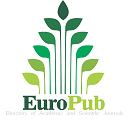Characterization of Egg White Lysozyme from Local Duck Mojosari and Alabio
Abstract
Lysozyme, a natural antibacterial, has potential use in several applications. Generally, it is obtained from chicken egg whites. However, the idea of using local duck eggs as a source of lysozyme is not wellknown. This study aimed to isolate and purify the egg white of Mojosari and Alabio ducks to characterize lysozyme. Additionally, the study analyzed the effect of temperature treatment on lysozyme enzymatic activity. Three different temperature treatments were used: Low Temperature Long Time (63 ℃, 30’), High Temperature Short Time (72 ℃, 15”), and sterilization (121 ℃, 15’). The Amberlite resin cation exchange chromatography method was successfully used to isolate and purify Mojosari and Alabio duck egg whites, achieving purity levels of 94.92-96.09%. The presence of lysozyme was confirmed by the existence of bands that were primarily composed of lysozyme. The results showed that each aspect of the characteristics of lysozyme and enzymatic activity were significantly affected (p<0.05) by the type of egg white. Enzymatic activity indicated that Alabio duck lysozyme was thermosensitive and could only survive at LTLT temperature, while Mojosari duck lysozyme could survive at LTLT and HTST pasteurization temperatures. However, both lysozymes did not survive the sterilization temperature.















